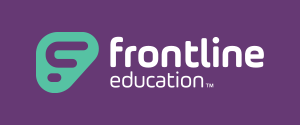-
Paraprofessional Resources
The Paraprofessional Resources page is intended to provide PSUSD's team of dedicated Paraprofessionals with the resources necessary to effectively support students' across a variety of settings at their school site. Ongoing Professional Development is provided throughout the school year to support our dedicated team of Paraprofessionals as they continue to refine instructional and behavior strategies, assistive technology devices and platforms, and some other skills necessary to student success.
-
What is an IEP?
An IEP is an Individualized Education Plan. An IEP must be prepared at least annually for every student, ages 3 -21, who have a disability. The IEP is developed by a team comprised of one or both of the student's parents or a guardian, special education teacher or provider, a general education teacher, all individuals who assess the student (if applicable), and a general education teacher who is knowledgeable about general educaiton curriculum and the availability of resources.
When appropriate, the student is encouraged to attend. Other persons who have knowledge or special expertise regarding the student may also attend at the discretion of the school district or parent/guardian. If more than one general education teacher is providing instructional services to the student, one teacher may be designated to represent the others. Every third year, the student must be re-evaluated to determine continued eligibility for special education services. The team calls this meeting the triennial IEP.
Click here to learn more about IEPs.
-
Overview of IDEA
The Individuals with Disabilities Education Act (IDEA) is a law that provides a free and appropriate public education (FAPE) to students who have disabilities throughout the nation, and ensures special education and related services to those children who qualify.
The IDEA regulates how states and schools provide services such as early intervention, specialized academic instruction, and related services to eligible infants, children, and young adults who have disabilities.
In Section 1400(c)(1), Congress states:
"Disability is a natural part of the human experience and in no way diminishes the right of individuals to participate or contribute to society. Improving educational results for children with disabilities is an essential element of our national policy of ensuring equality of opportunity, full participation, independent living, and economic self-sufficiency for individuals with disabilities."
Click here to read more about the purpose of IDEA
Click here to learn more about IDEA
-
IDEA Disability Categories
Both federal and state regulations establish eligibility criteria for all students age 3 – 22 seeking special education services. In order to qualify as an individual who has exceptional needs under the eligibility criteria, the assessment must demonstrate that the student’s disability adversely impacts their educational performance and requires special education. The 13 qualifying disability categories set out in state eligibility regulations are listed below:
- Autism Spectrum Disorder (ASD)
- Deaf-Blindness
- Deafness
- Emotional Disturbance
- Hearing Impairment
- Intellectual Disability (ID)
- Multiple Disabilities
- Orthopedic Impairment (OI)
- Other Health Impairment (OHI)
- Specific Learning Disability (SLD)
- Includes Dyslexia, Dysgraphia, Dyscalculia
- Speech of Language Impairment (SLI)
- Traumatic Brain Injury (TBI)
- Visual Impairment (VI)
Click here for an overview of each disability category.
-
What is the Least Restrictive Environment?
Palm Springs Unified School District offers a continuum of program options available to students. The majority of students are placed in the general education program. The intent of special education is to provide students who have disabilities an opportunity to be educated in the least restrictive environment possible according to their needs and abilities.
Program options from the least restrictive to the most restrictive:
● General education
● Related services and general education
● Resource Specialist Program and general education with or without related services
● Special Day Class part-day and general education with or without designated instruction and services
● Special Day Class full-day with or without designated instruction and services
● Non-public school with or without related services
● Residential placement with or without related services
● Hospitalization
Resource Specialist Program (RSP)
This program is for students with disabilities who spend the majority of the school day in the general education classroom but need assistance from the RSP teacher in order to have access to the curriculum and make progress toward their IEP goals
Special Day Class (SDC)
This program serves students whose disabilities necessitate that they are taught by a special education teacher in order to make progress toward their IEP goals.
Inclusion Services
Some students may have significant disabilities but receive their educational program in the general education setting. These students may receive support from an inclusion teacher to assist in the areas of behavior management, communication, social skills, and academic support.
Related Services
Specialized services are available for students based upon their individualized needs. These services may include but are not limited to, speech and language therapy, occupational therapy, physical therapy, adapted physical education, counseling, or orientation and mobility training.




